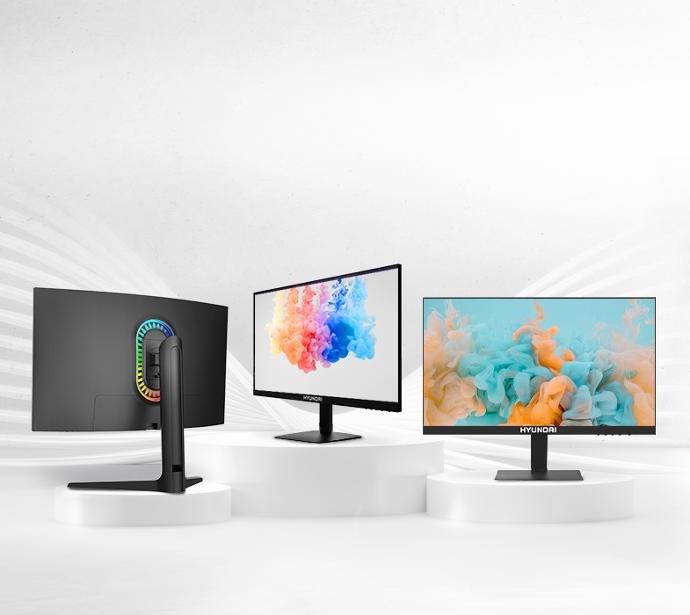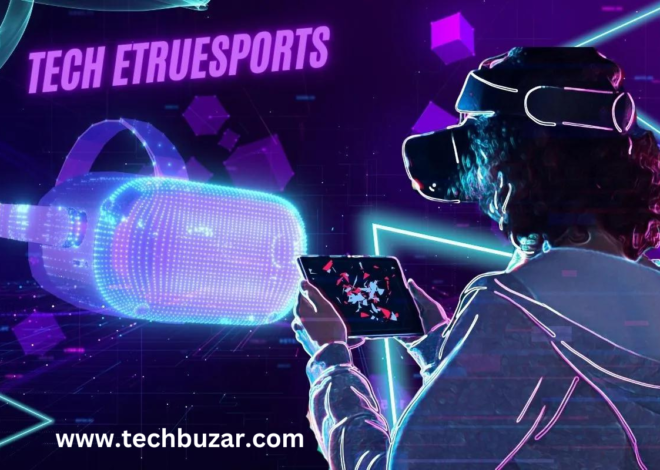
Hyundai digital technology
In the rapidly evolving landscape of automotive innovation. Hyundai digital technology has emerged as a trailblazer in harnessing digital technology to redefine the driving experience. With a commitment to pushing the boundaries of what is possible. Hyundai has seamlessly integrated cutting-edge digital advancements into its vehicles, marking a transformative era for the automotive industry. From smart connectivity solutions to advanced safety features and electrified platforms,
Origin of Hyundai
Hyundai, a South Korean automotive conglomerate. Has a rich and dynamic history that traces its roots back to the mid-20th century. The company was officially founded on December 29, 1967, by Chung Ju-yung. However, the Hyundai Group’s origins can be traced to Chung’s earlier ventures.
Chung Ju-yung, born in 1915 in what is now North Korea, initially began as a construction entrepreneur. In the aftermath of the Korean War, he established Hyundai Engineering and Construction in 1947. Contributing to the reconstruction efforts of a war-torn Korea. The success and growth of his construction business laid the foundation for the diversified Hyundai Group.
The Hyundai Motor Company, the automotive arm of the Hyundai Group, was established later, in 1967. Hyundai’s foray into the automotive industry was initially met with skepticism. But the company aimed to challenge the established global players. The first Hyundai car, the Cortina, was introduce in cooperation with Ford in 1968. Marking the beginning of Hyundai’s automotive journey.
In the early years, Hyundai focused on assembling and manufacturing cars in collaboration with international partners. However, as part of its long-term strategy, Hyundai sought to develop its own capabilities and technologies. The pivotal moment came in 1986 when the Hyundai Excel, the company’s first proprietary model, was launched. The Excel achieved significant success, particularly in export markets, establishing Hyundai as a formidable player in the automotive industry.
Over the following decades, Hyundai continued to evolve and innovate. The company gained a reputation for producing reliable. Affordable vehicles, and it expanded its global presence by establishing manufacturing plants and subsidiaries worldwide. Hyundai’s commitment to quality, design, and technology contributed to its ascent in the automotive market.
when Hyundai starts work on digital technology:
Hyundai’s foray into digital technology in the automotive sector began gaining momentum in the late 20th century and has continued to evolve significantly in the 21st century. While the exact timeline may vary for specific technologies, some key milestones demonstrate Hyundai’s increasing focus on digital innovations:
Late 1990s – Early 2000s:
In the late 1990s and early 2000s, Hyundai. Like many other automotive manufacturers, started incorporating basic digital features into its vehicles. This period saw the introduction of electronic control systems, digital displays, and rudimentary in-car entertainment systems.
Mid-2000s:
Hyundai began investing more substantially in research and development related to digital technology. During this period, the company started integrating more advanced features such as navigation system. Bluetooth connectivity, and improved infotainment options into its vehicles.
Late 2000s – Early 2010s:
With the growing importance of connectivity, Hyundai placed a greater emphasis on digital technology. This period saw the introduction of more sophisticated infotainment systems. Advanced driver assistance systems (ADAS), and the integration of smartphone connectivity options.
2015 and Beyond:
In recent years, Hyundai has accelerated its efforts in the digital space. The company has invested in developing connected car technologies, enhancing vehicle-to-infrastructure communication, and exploring innovations in electric and autonomous vehicles. Hyundai’s commitment to a digital-first approach is evident in the development of features like over-the-air software updates. Advanced driver-assistance systems, and connected services.
what are the main key features in Hyundai digital technology:
Specific features vary by model and can change over time as new technologies are develop and introduce. Here are some general key features that were relevant around that time:
Infotainment Systems:
Hyundai vehicles often come equipped with advanced infotainment systems, which may include touchscreens, voice recognition, Apple CarPlay, Android Auto, navigation, and smartphone integration.
Blue Link Connectivity:
Hyundai’s Blue Link is a connected car system that provides features such as remote start, remote lock/unlock, vehicle diagnostics, and maintenance alerts. It also includes safety features like emergency assistance and stolen vehicle recovery.
Driver Assistance Systems:
Hyundai incorporates various driver assistance technologies, such as adaptive cruise control, lane-keeping assist, automatic emergency braking, blind-spot monitoring, and parking assistance.
Hyundai SmartSense:
SmartSense is a suite of safety features that may include forward collision avoidance, lane departure warning, driver attention warning, and high beam assist.
Hyundai Digital Key:
Some Hyundai models offer a digital key system that allows users to unlock and start their vehicles using a smartphone app. This can also be shared with others.
Augmented Reality Navigation:
Some Hyundai vehicles may have an augmented reality navigation system, providing enhanced guidance by overlaying navigation information onto the real-world view through the vehicle’s camera.
Wireless Charging:
Hyundai may offer wireless charging pads for smartphones in some of their models.
Voice Recognition:
Many Hyundai vehicles are equipped with advanced voice recognition systems that allow drivers to control various functions in the car hands-free.
Hyundai Bluelink App:
The Bluelink app allows users to remotely control certain vehicle functions, monitor vehicle status, and receive notifications through their smartphones.
It’s important to check the latest specifications and features for specific Hyundai models as technology evolves, and newer models may come with additional or updated digital technologies. Always refer to the latest information provided by Hyundai or its dealers for the most accurate and current details.
How Hyundai digital technology is separate and better from others:
Assessing whether Hyundai’s digital technology is “better” than that of other automakers can be subjective and may depend on individual preferences, needs, and priorities. Different automakers excel in various aspects of digital technology, and advancements can vary from model to model and year to year. However, Hyundai has made efforts to integrate innovative technologies into its vehicles. Here are some aspects where Hyundai has been recognized:
Blue Link Connectivity:
Hyundai’s Blue Link system provides a range of connected services, including remote start, vehicle tracking, and maintenance alerts. The breadth and functionality of these services may vary from competitor offerings.
Value for Money:
Hyundai has positioned itself as a brand that offers advanced technology at competitive prices. Some customers appreciate the value proposition of Hyundai vehicles, which include a variety of digital features without a significant increase in cost.
Warranty and Support:
Hyundai often provides a competitive warranty, and this can be seen as part of the overall customer support, which may extend to digital components. The peace of mind offered by an extensive warranty can be an attractive feature.
Innovative Features:
Hyundai has introduced some innovative features, such as the digital key system that allows users to unlock and start their vehicles using a smartphone app. Augmented reality navigation is another example of an advanced feature.
However, it’s important to note that other automakers also have their strengths and unique features in the realm of digital technology. Brands like Tesla, BMW, Mercedes-Benz, and others are known for their own advancements in connectivity, autonomous driving capabilities, and cutting-edge infotainment systems.
What is Hyundai digital technology is preparing for future launching:
Hyundai has been focusing on several areas of development that could shape its future digital technology offerings:
Electric and Autonomous Vehicles:
Hyundai has been investing heavily in electric vehicles (EVs) and autonomous driving technology. Future launches may include EVs with advanced digital interfaces and autonomous driving capabilities.
Connected Car Services:
Hyundai’s commitment to connected car services is likely to continue, with advancements in areas such as remote diagnostics, over-the-air software updates, and enhanced connectivity features.
Artificial Intelligence (AI) Integration:
Hyundai may integrate AI technologies further into its vehicles to enhance user experience, personalize features, and enable voice-activated controls and assistance.
Smart Mobility Solutions:
Hyundai is exploring various smart mobility solutions, including ride-sharing platforms, mobility-as-a-service (MaaS) initiatives, and urban mobility solutions. These could involve digital platforms and apps to facilitate seamless transportation experiences.
Augmented Reality (AR) and Virtual Reality (VR) Integration:
Hyundai could explore the integration of AR and VR technologies into its vehicles for purposes such as enhanced navigation, entertainment, and immersive user experiences.
Advanced Infotainment Systems:
Future Hyundai vehicles may feature more advanced infotainment systems with larger touchscreens, gesture controls, improved voice recognition, and seamless integration with smartphones and other digital devices.
Cybersecurity and Data Privacy:
With the increasing connectivity of vehicles, Hyundai is likely to prioritize cybersecurity and data privacy measures to protect user information and ensure the integrity of vehicle systems.
Sustainability Initiatives:
Hyundai is also focusing on sustainability initiatives, which may include digital solutions for eco-friendly driving, energy management, and carbon footprint reduction.
conclusion about Hyundai digital technology:
In conclusion, Hyundai has demonstrated a commitment to advancing digital technology within its vehicles, aligning with the evolving landscape of the automotive industry. The integration of features such as Blue Link connectivity, innovative infotainment systems, and driver assistance technologies underscores Hyundai’s dedication to enhancing the overall driving experience for its customers. The brand’s focus on electric and autonomous vehicles, artificial intelligence, and connectivity services positions Hyundai at the forefront of technological innovation.
As Hyundai continues to invest in smart mobility solutions, sustainability initiatives, and advanced digital interfaces, it is poised to shape the future of automotive technology. However, the ultimate assessment of Hyundai’s digital technology will depend on how well it meets the diverse and evolving needs of consumers while maintaining a balance between innovation, usability, and safety. As the automotive industry undergoes rapid transformation, Hyundai’s digital technology initiatives hold the potential to contribute significantly to the overall competitiveness and appeal of its vehicles in the marketplace.
Read Also:American Technology Consulting



I抎 must verify with you here. Which is not something I normally do! I take pleasure in studying a publish that can make folks think. Also, thanks for permitting me to comment!
Heya just wanted to give you a quick heads up and let you know a few of the pictures aren’t loading properly. I’m not sure why but I think its a linking issue. I’ve tried it in two different web browsers and both show the same outcome.
I抣l immediately clutch your rss as I can not find your email subscription link or newsletter service. Do you have any? Please let me recognize so that I may just subscribe. Thanks.
Excellent website you have here but I was curious if you knew of any forums that cover the same topics discussed here? I’d really like to be a part of online community where I can get opinions from other knowledgeable people that share the same interest. If you have any suggestions, please let me know. Bless you!
Thanks for the suggestions you write about through this blog. In addition, many young women exactly who become pregnant don’t even aim to get medical health insurance because they dread they couldn’t qualify. Although a few states at this moment require that insurers present coverage in spite of the pre-existing conditions. Charges on these kinds of guaranteed programs are usually larger, but when taking into consideration the high cost of medical treatment it may be the safer strategy to use to protect a person’s financial potential.